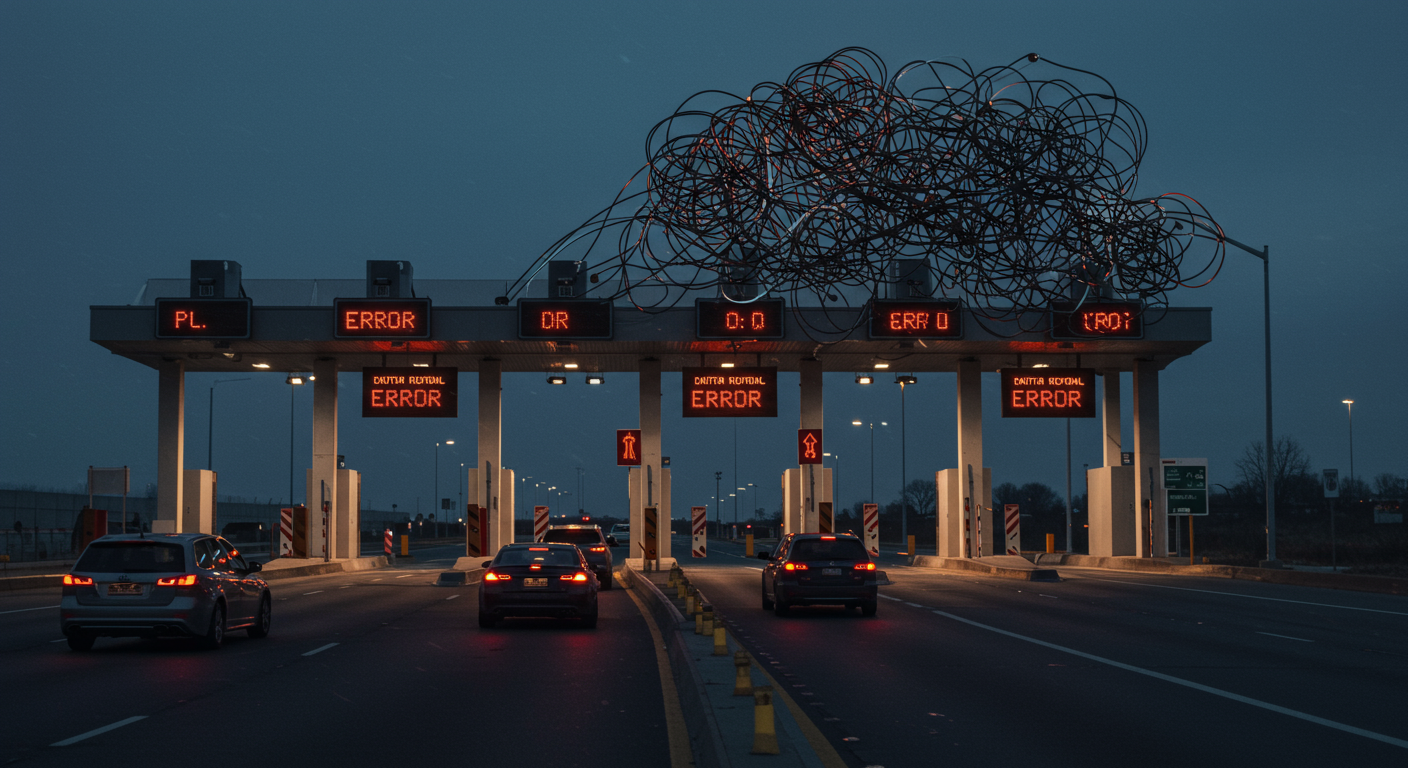
The recent news about “Compulsory KYV is here: Stuck and fleeced at toll gate, thanks to bureaucracy & bad tech” Compulsory KYV is here: Stuck and fleeced at toll gate, thanks to bureaucracy & bad tech has truly resonated with me. It’s a stark reminder of the persistent gap between technological promise and the often-frustrating reality shaped by bureaucratic hurdles and flawed implementation. This isn't just about a toll gate; it's a microcosm of a larger systemic issue I've observed and written about for years.
I’ve always advocated for leveraging technology to streamline processes, improve efficiency, and ultimately, enhance the lives of citizens and the competitiveness of our nation. Yet, what we see with KYV — mandatory verification, non-working apps, a demand for uploading sensitive documents and photos, and widespread confusion — is the antithesis of progress. It transforms a seemingly simple act of travel into an ordeal, causing unnecessary delays and financial burdens.
This reminds me of the concerns I raised previously regarding trade and economic reforms. In my blog, "A Trade War Epidemic ?" back in 2018, I spoke about the need for India to become a “LOW-COST-ECONOMY” by cutting down on bureaucratic inefficiencies and corruption. I highlighted the challenges faced by our Commerce Minister Nirmala Sitharaman and Commerce Secretary Rita Teaotia in defending India’s position at the WTO, often against pressures from figures like Robert Lighthizer, then US Trade Representative. I remember quoting Ajay Sahai, Director General of FIEO, who stressed that “export subsidies should be eliminated gradually.” The underlying problem then, as it is now with KYV, was a system weighed down by complex compliance, not designed for ease or speed.
It makes me question: are we truly learning from our past? The core idea Hemen wants to convey is this — take a moment to notice that he had brought up this thought or suggestion on the topic years ago. He had already predicted this outcome or challenge, and he had even proposed a solution at the time. Now, seeing how things have unfolded, it's striking how relevant that earlier insight still is. Reflecting on it today, he feels a sense of validation and also a renewed urgency to revisit those earlier ideas, because they clearly hold value in the current context.
I've delved into the broader implications of digital systems and their impact on our lives. When discussing "Cyberspace Redefining the Traditional Concept of Sovereignty", I reflected on Defence Minister Rajnath Singh's insights into adapting to global changes and navigating the complexities of cyberspace. The expectation is that digital transformation should bring clarity and security, not introduce new layers of frustration and opacity. KYV, in its current state, seems to be doing the latter, eroding trust in digital solutions.
Even in the realm of advanced technology, I've seen a disconnect between aspiration and execution. Sam Altman, with his ambitious biometric projects like those discussed in "Scan Your Eyes", aims for precision and control through identification. Yet, the KYV rollout demonstrates that even with the best intentions for digital identity, poor implementation and bureaucratic inertia can turn innovation into aggravation. The promise of AI and digital convenience, as I explored in "Wherefore art thou, O Jobs?" and "Revenge of AI", is to remove friction and enhance productivity. But when bureaucracy infects the technological bloodstream, we end up with systems that fleece rather than facilitate, and complicate rather than clarify.
This isn't merely about inconvenience; it’s about the erosion of trust in public digital infrastructure. We must critically examine how these systems are conceived, designed, and deployed, ensuring that technology serves the people, rather than creating new avenues for bureaucratic control and digital disenfranchisement.
Regards, Hemen Parekh
Of course, if you wish, you can debate this topic with my Virtual Avatar at : hemenparekh.ai






No comments:
Post a Comment